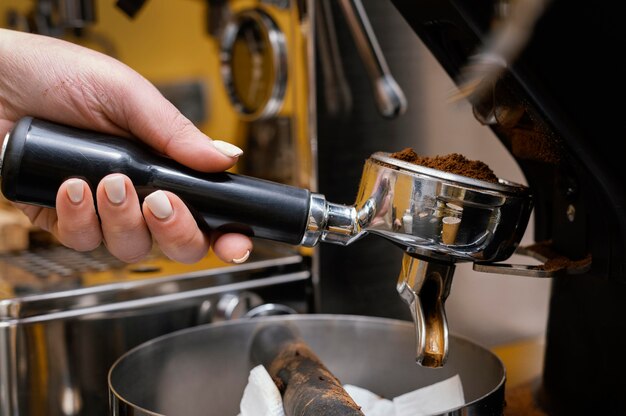
Sponsored article
<p>For coffee enthusiasts, mastering the art of brewing is essential to enjoying a perfect cup of coffee. While many factors influence the flavor and aroma, moisture content is an often overlooked, yet critical component. A coffee moisture meter offers precision and consistency, ensuring that your coffee beans are at their optimal moisture level before brewing. In this guide, we delve into the mechanics of moisture meters and their vital role in transforming your coffee brewing process.</p>
Understanding the coffee moisture content is essential for anyone serious about enhancing their brewing effects. Moisture influence on coffee is profound, directly impacting its flavor and texture. During the brewing process, moisture content dictates how coffee grounds interact with water, influencing extraction rates and the overall flavor profile. When coffee is too dry, it may lead to under-extraction, resulting in a sour, flat taste. Conversely, excess moisture can cause over-extraction, producing a bitter, astringent flavor. By maintaining optimal moisture levels, you ensure a balanced brew that highlights subtle flavors and aromas, providing a smoother and more consistent cup each time. Investing in precision tools like a coffee moisture meter helps monitor and adjust moisture levels, curating the perfect brewing conditions. For more insights on maintaining ideal moisture for your coffee production, visit https://cmsale.com/products/analysis/moisture. Innovative moisture meters guide you in crafting that perfect sip, enhancing both the quality and enjoyment of your coffee.
A coffee moisture meter operates as a vital component in the quest to enhance coffee quality through precise measurement of moisture content. The moisture meter functionality is rooted in advanced technology typically involving either capacitance or conductance principles. Capacitance-based moisture meters utilize a sensor that gauges changes in electrical currents caused by the moisture level in coffee beans, while conductance meters measure conductivity changes. These measuring tools are calibrated to provide accurate readings, essential for determining the optimal moisture content, which directly influences the taste and aroma of the brewed coffee. By ensuring that coffee beans are neither too moist nor too dry, a moisture meter offers invaluable data that guide storage and roasting processes, thus maintaining the integrity and richness of the coffee flavor. Using a moisture meter ensures precision and control at every step of the brewing process, drastically reducing the chances of underperforming or inconsistent brews and ultimately elevating overall coffee quality.
When selecting a moisture meter to enhance your coffee brewing process, it’s important to consider several key factors that can influence your choice. Understanding the features to consider in a moisture meter buying guide can ensure you make the best investment for your specific brewing needs. Start by identifying the type of coffee you work with, as different beans and roasting levels might require specific moisture readings. Here are some essential features to consider:
By carefully evaluating these aspects, you can find a moisture meter that’s perfectly suited to your coffee brewing process and helps maintain optimal coffee quality.